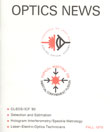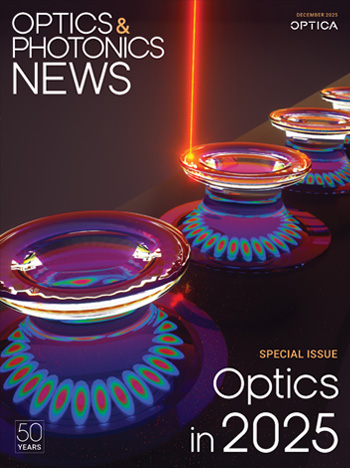
October, 1979 Issue
Feature Articles
Hologram Interferometry And Speckle Metrology: A Retrospective Look
As I write this article, it is autumn, 1979. Fifteen years ago, at this time of the year, Robert L. Powell and I performed some experiments at the Institute of Science and Technology (as it then was) at the University of Michigan, in the Radar and Optics Laboratory under Emmett Leith. Our contract objective was to study holograms for their potential in aerial photography; however, in practice we were trying to find out why, of all the holograms recorded of a three dimensional object, one was excellent and the rest were poor. In the course of our experiments we noticed certain characteristics of "bad" holograms and sought to investigate these defects. The result was the discovery of hologram interferometry.
by Karl A. StetsonLaser Electro-Optics Technicians: Specific Training Programs For Specific Needs
Advances can be achieved most effectively in high-technology fields such as laser electro-optics only if an adequate, well-trained work force exists. In the formative years of the early 1960's, research and development in laser technology was conducted primarily by engineers and physicists.
by Arthur H. Guenther and Daniel M. HullDetection and Estimation in Optics: Basic Concepts
In recent years, more and more of those engaged in research and development engineering in optics have been applying the concepts of modern detection and estimation theory. At the 1978 annual meeting of the Optical Society of America, a Symposium on Detection and Estimation in Optics was presented.
by John F. Walkup and Robert B. Asher

![Manual probe system with needles for test of semiconductor on silicon wafer. [A. Morozov / Getty]](https://opnmedia.blob.core.windows.net/$web/opn/media/images/articles/2025/1125/departments/202511-cover-web.jpg?ext=.jpg)
![Researcher Clara Saraceno in the lab. [Image by Carsten Behler Photography]](https://opnmedia.blob.core.windows.net/$web/opn/media/images/articles/2025/1025/departments/202510-cover-web.jpg?ext=.jpg)
